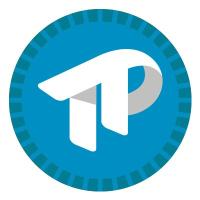Cryptocurrency companies are accelerating their efforts to influence the U.S. Securities and Exchange Commission's (SEC) digital asset policy. On the 17th (local time), electronic record management service company Fairmint announced that it submitted a seven-clause framework to the SEC's crypto task force to address the obsolescence of private securities management systems. Along with this, they proposed performance improvements focusing on regulatory unification, real-time audit capabilities, and investor self-custody.
Fairmint delivered this framework to SEC Chairman Paul Atkins and Director Hester Peirce, explaining that it centers on infrastructure standardization through collaboration, establishing a real-time monitoring system via blockchain, and creating a DeFi experimental space under regulation. They particularly emphasized transitioning qualification requirements to investment knowledge-based criteria, rather than existing income and net worth standards. The proposal was structured with the goal of enhancing 'transparency and efficiency' in the private market.
The private market involves private capital investment in unlisted companies. According to S&P Global, the market size reached $5.3 trillion in 2023 and is projected to reach $6 trillion by the end of 2024. However, Fairmint pointed out that the current system, which still relies on spreadsheet-based software like Excel without even settlement functions, incurs enormous costs and is far behind the public market.
Joris Delanoue, Fairmint's CEO, warned, "While private companies manage capital tables worth billions of won using Excel, listed companies have regulatory-based infrastructure. This imbalance is causing unnecessary friction and regulatory gaps in capital formation in the United States." Fairmint's current clients include wallet infrastructure provider Privy and location-based social network platform Loom Network.
Meanwhile, the SEC's crypto task force recently held two regulatory discussion sessions, hearing industry opinions on tokenization and DeFi. Discussions focused on finding intersection points between traditional finance and digital assets.
Financial companies are also actively participating in the tokenization trend. U.S. retail trading platform Robinhood recently unveiled a network plan allowing Europeans to trade listed U.S. stocks on a blockchain basis. Vladimir Tenev, Robinhood's CEO, stated that "tokenization of private stocks and other unlisted assets will become the company's next key task." This indicates that digital transformation is gradually expanding into the private market.
Real-time news...Go to TokenPost Telegram
<Copyright ⓒ TokenPost, Unauthorized Reproduction and Redistribution Prohibited>







